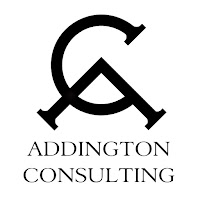Those who have a personal agenda for the church. Jesus designed church leadership as a plurality of leaders, not an individual leader. That, by necessity, means that we intend to seek God's face together regarding the direction of the church. Rather than a personal agenda, we are committed to a corporate agenda based on seeking God's will. Those with individual agendas will sabotage that corporate pursuit of God's will.
Those who cannot submit to group decisions. The humility to seek God's will as a group and then submit to that direction is a natural extension of the comments above. Regardless of their reasoning, people who need their own way are not qualified to serve in church leadership. Divided boards ultimately create divided congregations.
Those who are black and white and inflexible. Group leadership requires flexibility in the opinions of others and the ultimate decisions of a group. Those who draw fine lines on issues and cannot be flexible will find it difficult, if not impossible, to serve well in a group setting. This includes legalists who draw fine distinctions in lifestyle and fine points of theology where there is legitimate room for disagreement.
Those who cannot deal with conflict. High, high mercy types are better off serving on care teams than leadership boards, as every key ministry decision has the potential to make someone unhappy. That requires that one has the ability to negotiate conflict and even live with the fact that not everyone is happy. It is hard to do if one is extremely high on the mercy scale and does not want to make anyone unhappy.
Those who cannot think conceptually. Some people can only deal with details and love to drill down to the details of anything under discussion. Leaders, however, are responsible for a higher level of discussion and leadership requiring conceptual thinking. Concrete thinkers will always find it hard to do the needed higher-level thinking of a leadership board.
Those who have a history of conflict or relational dysfunction. Healthy boards are built on healthy relationships. Anyone with a history of creating conflict or relational issues should not be put on a leadership board where healthy relationships with God and one another are the coinage of leadership. Leadership is always about helping people become what God wants them to become. It is hard to do if one has a history of conflict and relational dysfunction.
Those who like power. Unfortunately, Power brokers are a fact in many congregations and are always a sign of dishealth. Power brokers are people with a personal agenda that is of higher value to them than a board's corporate decision-making process. Power brokers create factions for their side, which creates division in the board and church. They are dangerous people in any church.
Those who don't truly pursue God fully. Church leadership is about Jesus and where He wants to lead a church. That requires a higher degree of followership to the one on whose behalf one leads and a deep sensitivity to His direction and will. That is only possible with individuals who pursue Him. In defining the character qualities of those who should serve in leadership, the New Testament naturally rules out those whose spiritual life is not healthy or mature.
.jpeg)


















